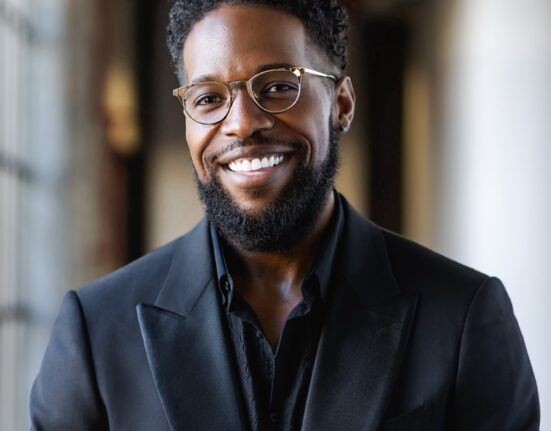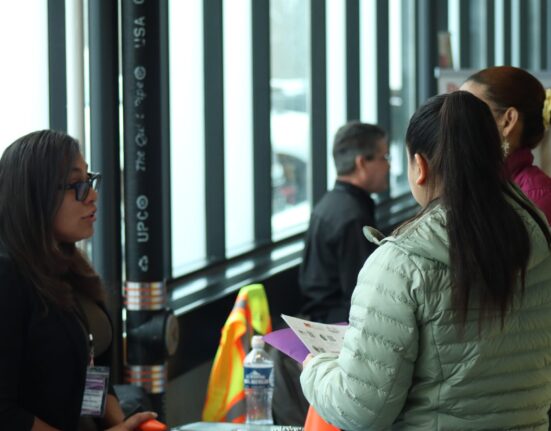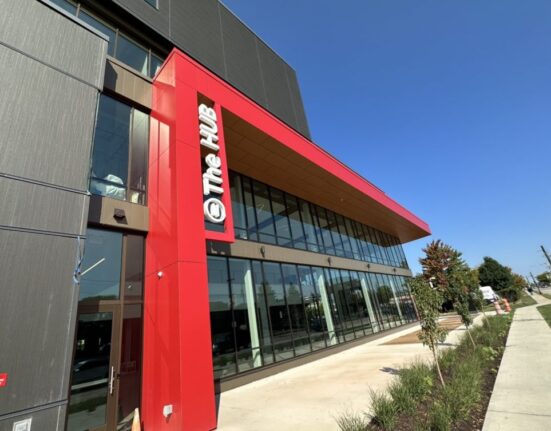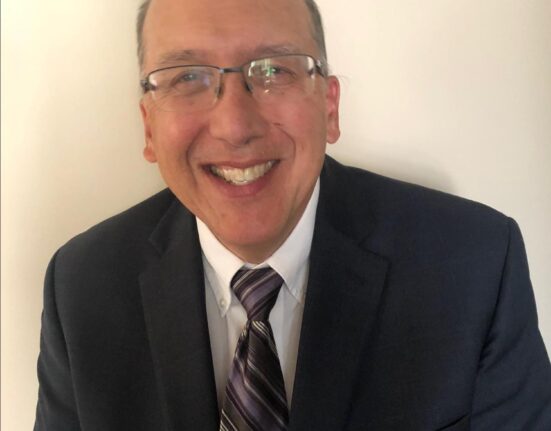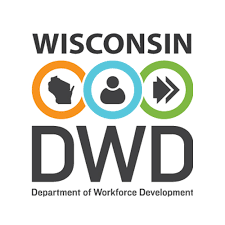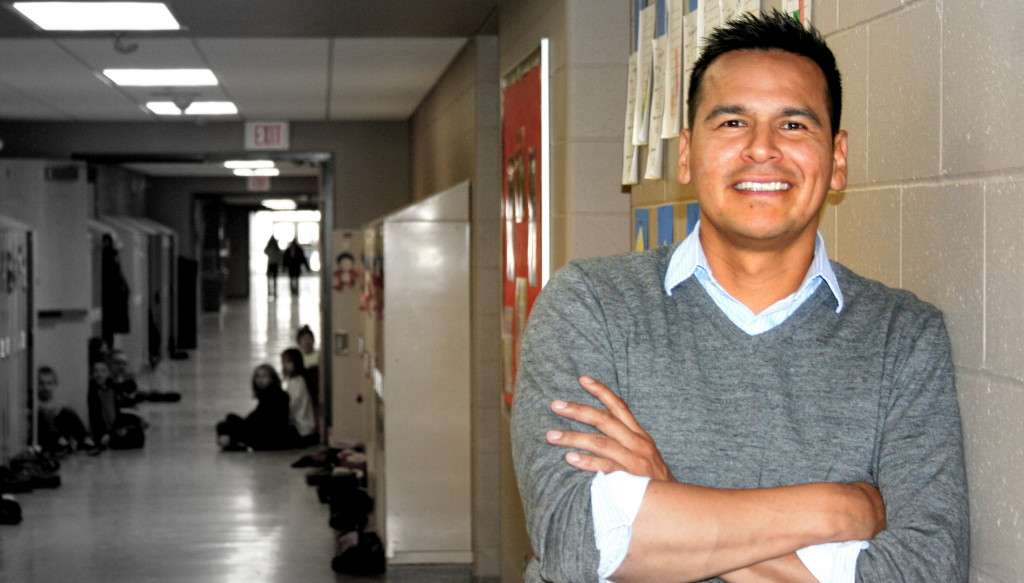
As a kid, RunningHorse Livingston wanted to be an architect.
“I was good at drawing and I was good at math. Those two things kind of seem to go together” in architecture, he told Bluepring365 in a recent interview.
A member of the Bad River Band of Lake Superior Chippewa who grew up in northern Minnesota, he went on to the University of Minnesota-Duluth. He found himself quite alone in math and engineering classes, and in summer programs where he was helping tutor and mentor young math and engineering students.
“When I realized mid-college that there were only a handful of us that were trying to achieve this dream, it became more important for me than to help other people achieve it. I didn’t want to just be by myself doing this thing,” he said. “I just always assumed, incorrectly, that you earned the grades that you got. If you didn’t work hard then you weren’t going to achieve your dreams or your degrees. But the more research I did, the more I realized that the system that we as people of color go through … there’s a ton of inequality that I think we’re trying to address now. I think things are better than they were 20 years ago. But you know, we’ve still got a long road ahead of us.”
As he began to see the disparities in education – especially in math – he doubled down on addressing those disparities, earning a master’s degree in curriculum and instruction from the University of Minnesota – Duluth in 2003. Shortly thereafter, he launched Mathematize, an educational consulting firm to help schools and teachers provide more culturally-appropriate math instruction.
He now works with schools from Alaska to Florida, often for more than three years at a time.
He noted that math instruction traditionally hasn’t rooted the math in real-world applications – or if it does, the applications are “super boring” and not culturally relevant.
“When I go to Northern Minnesota to teach, it’s a big snowmobile culture, so for high schoolers there, you talk about sleds and your mods you make to your sleds,” he said. “When I go to Albuquerque, it’s about water rights and water resources and understanding your rights as a citizen.”
In addition to the content of math classes being more culturally relevant, the mode of instruction should be, too, Livingston said.
“A lot of people of color (live in) community based social systems, so things are done in groups often. I know for tribal students, that’s definitely the case,” he said. “When you’re learning, it doesn’t fit to have to be in a row of desks, always separate from your peers. You’ll hear that feedback from students all the time – we learn better when we’re able to work with our friends.”
Livingston also said there’s more to math than numbers – for him, it’s about problem solving.
“For a lot of us who were in you know, Generation Xers or older, math really wasn’t about problem solving. It was about memorizing things and then trying to regurgitate that information on tests,” he said, which doesn’t do much for students in the long run.
“When I go home and I talk to friends who now are business owners or who inherited their family’s farm … the math experience that we all had as high school students absolutely did not help them to run their farm or to run their business,” Livingston said.
Thinking of math as the foundation for long-term problem-solving skills makes it all the more important that students of color get it.
“There are always unresolved problems within communities of color. Our kids are robbed of that experience to practice this life skill of problem solving,” he said. “When they become adults, then nobody really knows how to address the issues that we have, because we haven’t practiced this art of finding an entry to a problem, finding a resolution to the problem and then measuring the outcome of that resolution. We don’t have a lot of experience with that process. And when you don’t have that problem solving mindset it’s human nature to mimic what you see around you.”
Those problem solving skills can also translate into career paths.
“Mathematics is a civil right, when you boil everything down. Math is such a gatekeeper for these professions,” he said. “When you look around the workforce, who are the CEOs and who are the lawyers and who are the doctors? The lack of diversity there definitely reflects the lack of diversity in education.”’
Livingston said the recent focus on so-called critical race theory (CRT) in schools – a catchphrase for any educational practice that acknowledges race or racism – hasn’t really impacted his work.
“You can’t really ban CRT when almost half the population lives CRT,” he said, adding that opposition comes “all out of fear.”
Despite that fear and opposition, Livingston said teachers and schools have embraced what he has to offer.
“I have yet to meet a teacher who doesn’t want to be a better teacher, who doesn’t want to be better at the art or science of teaching,” he said. “I’ve yet to meet a teacher who isn’t fully committed to their kids.”

